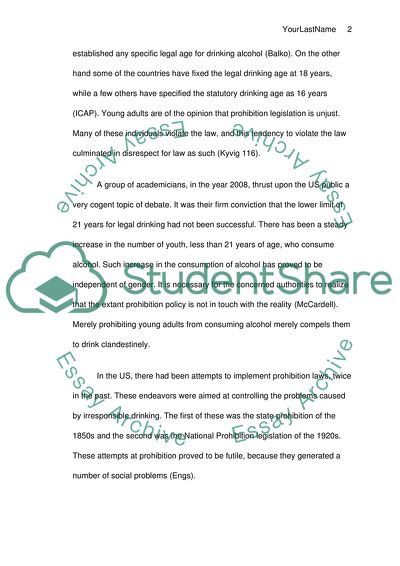Cite this document
(Alcoholic Drinking Age Coursework Example | Topics and Well Written Essays - 2500 words, n.d.)
Alcoholic Drinking Age Coursework Example | Topics and Well Written Essays - 2500 words. https://studentshare.org/law/1753177-alcoholic-drinking-age
Alcoholic Drinking Age Coursework Example | Topics and Well Written Essays - 2500 words. https://studentshare.org/law/1753177-alcoholic-drinking-age
(Alcoholic Drinking Age Coursework Example | Topics and Well Written Essays - 2500 Words)
Alcoholic Drinking Age Coursework Example | Topics and Well Written Essays - 2500 Words. https://studentshare.org/law/1753177-alcoholic-drinking-age.
Alcoholic Drinking Age Coursework Example | Topics and Well Written Essays - 2500 Words. https://studentshare.org/law/1753177-alcoholic-drinking-age.
“Alcoholic Drinking Age Coursework Example | Topics and Well Written Essays - 2500 Words”. https://studentshare.org/law/1753177-alcoholic-drinking-age.


